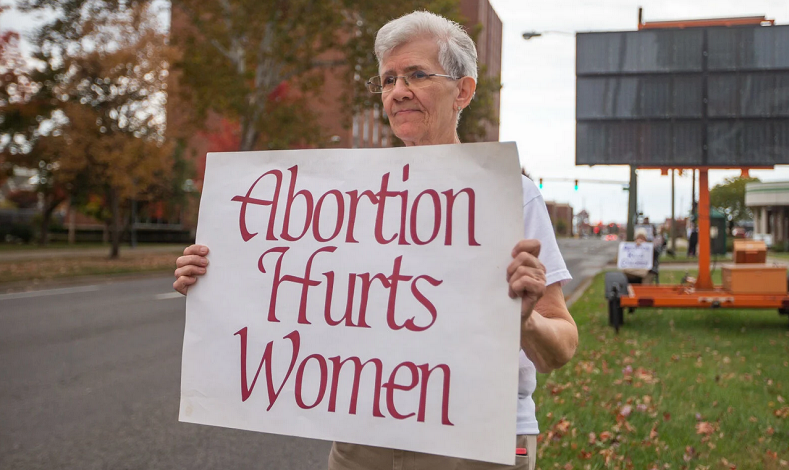CVS and Walgreens, the two largest pharmacy chains in America, announced last week that they will begin selling the abortion pill Mifepristone in select states. While the drug will only be available by prescription, it will soon become accessible in pharmacies within states that do not ban abortion or require a physician to administer the drug in person.
CVS stated it will begin filling prescriptions in Massachusetts and Rhode Island in the coming weeks while Walgreens will begin dispensing the drug at “select locations” in New York, Pennsylvania, Massachusetts, California, and Illinois.
This announcement is a result of many regulatory changes the U.S. Food and Drug Administration (FDA) has made regarding Mifepristone over the last eight years. Most recently, the FDA has allowed retail pharmacies to get certified to dispense Mifepristone. Both CVS and Walgreens concurrently stated they received the necessary Risk Evaluation and Mitigation Strategy (REMS) certification from the FDA to dispense the drug.
Despite the drug’s questionable safety record, the FDA has relaxed numerous other safety measures and health protections regarding Mifepristone, such as adverse event reporting, in-person doctor visits, follow-up care, and mail-order restrictions. Currently, pro-life doctors are challenging these decisions from the FDA at the U.S. Supreme Court. In U.S. Food and Drug Administration v. Alliance for Hippocratic Medicine, the doctors argue the FDA acted unlawfully by removing the drug’s safeguards and that the restrictions should be reinstated. The Supreme Court will hear the case on March 26, 2024, and the High Court’s decision will likely impact how Mifepristone is dispensed in the future. Liberty Counsel filed an amicus brief in the case arguing how Mifepristone has become a “tool of modern-day eugenics” to inexpensively abort millions of unborn lives through widespread abortion.
LifeNews is on TruthSocial. Please follow us here.
Since the regulatory changes have been in effect, government officials have pressured CVS, Walgreens, and many other retail pharmacies to get certified and make Mifepristone, which can only be prescribed in the first 10 weeks of pregnancy, as accessible as possible. In 2023, 53 members of Congress, 17 senators, and 14 state governors sent letters to the pharmacies criticizing any delay in getting certified and admonishing the companies for not taking swift action to provide the widest possible access for pregnant women to kill their unborn children.
In response, 20 state attorneys general issued a letter of their own to the pharmacies advising the companies not to distribute Mifepristone by mail which would violate the federal Comstock Act, as well as several individual pro-life state laws.
Walgreens acknowledged the letter from the state attorneys general stating it would comply with state laws and not distribute the abortion pill in those 20 states. Both CVS and Walgreens stated they are ensuring to make the pill available and accessible in states that clearly allow it.
Currently, 21 states allow the abortion pill to be prescribed by a medical professional without an in-person doctor visit (California, Colorado, Connecticut, Delaware, Hawaii, Illinois, Maine, Maryland, Massachusetts, Minnesota, Montana, New Hampshire, New Jersey, New Mexico, New York, Oregon, Rhode Island, Vermont, Virginia, Washington, and Wyoming). Fifteen states only require a physician to prescribe the abortion pill (Alaska, Arizona, Florida, Georgia, Iowa, Kansas, Michigan, Nebraska, Nevada, North Carolina, Ohio, Pennsylvania, South Carolina, Utah, and Wisconsin). Only five of those states require an in-person visit with the physician (Arizona, Nebraska, North Carolina, South Carolina, and Wisconsin). The remaining 14 states have near-total abortion bans in effect (Alabama, Arkansas, Idaho, Indiana, Kentucky, Louisiana, Mississippi, Missouri, North Dakota, Oklahoma, South Dakota, Tennessee, Texas, and West Virginia).
Since the FDA relaxed the drug’s restrictions, chemical abortions now account for at least 53 percent of all abortions in the nation.
Mifepristone, half of a two-drug protocol used to end pregnancies in early stages, cuts off blood and nutrients to an unborn baby slowly starving it to death over one to two days. Mifepristone is taken with Misoprostol, which induces labor and causes severe cramping, contractions, and bleeding to expel the baby from the womb. Mifepristone is manufactured under the label Mifeprex, and comes with a “black box warning,” which is the FDA’s strongest warning for drugs with major risks. The medication guide advises abortive mothers to expect cramping, vaginal bleeding, and that they may potentially see blood clots and tissue.
Studies have shown the two-drug protocol is unsafe for women. For example, the FDA reports there have been 32 deaths and 4,218 adverse events, 603 blood transfusions, and 413 infections associated with Mifepristone since 2000. However, since the FDA relaxed reporting requirements for adverse events regarding Mifepristone in 2016, the actual number of adverse events is unknown. The Charlotte Lozier Institute reports 35 out of every 100 women who ingest both pills will require an emergency room visit.
According to pro-life doctors with the Alliance for Hippocratic Medicine, who are challenging the FDA’s actions at the Supreme Court, Mifepristone is causing “irreparable harm” to women and doctors. In their argument, they state the FDA is forcing emergency room doctors to violate their consciences by having to help “complete” an abortion in progress for the women suffering under the abortion pill’s harmful effects.
Liberty Counsel Founder and Chairman Mat Staver said, “Pharmacies have no place in the abortion business. The abortion industry’s culture of death wants widespread access to Mifepristone to facilitate human genocide for profit. Pharmacies should focus on helpful medication and not on pills that kill unborn babies.”








